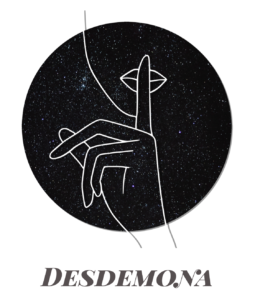On November 1st, 1604, a lively audience gathered at the Banqueting House at Whitehall, one of the most elaborate and well-known halls in all of London. Behind the stage curtains, Shakespeare’s acting group, the King’s Men, was getting ready to premiere what was to be one of the most popular plays of the next few centuries: Othello.
The story of a skilled soldier battling against racism and struggling with delusional jealousy held the public eye for a long time. The play discussed themes that weren’t seen by many 1604 audiences, creating a discourse around it that would propel it into one of the most famous stories of all time. As society developed, Othello fell under criticism for its dated sociological views and a different character rose the ranks of public notoriety in the new century. Her name is Desdemona.
The original audience on that Hallowmas night saw a Desdemona in misery. Her marriage to Othello dominates her usually independent personality and she is seen as little more than a wife trying to get by. Her life meets a tragic end when Othello murders her in her sleep: a death she predicted. Production after production, her story ends with her singing her final ballad:
“She was in love; and he proved mad / And did forsake her. She had a song of willow. / And she died singing it. That song tonight / Will not go from my mind”
In May of 2011, Desdemona got her voice back. Toni Morrison, an American novelist awarded with the Presidential Medal of Freedom, Nobel Prize, Pulitzer Prize, and countless other honors, collaborated with director Peter Sellars and composer Rokia Traoré to raise the voices of one of Shakespeare’s most silenced characters. The result of this collaboration was Desdemona, a play where the women are speaking.
Now, as Desdemona suffocates at the hand of her husband, Morrison frees her into the space between life and death. With the fervor of someone silenced for 400 years, Desdemona explores her position through heart-wrenching soliloquy and connections with figures from her past. Morrison delves into the same themes of racism and domestic violence as Shakespeare, but through a complex and current lens.
On December 11th and 13th of 2020, Desdemona speaks once again; this time online. With original music from composer Josh Fried, a talented cast from across the country, and a remote production team from Davis Shakespeare Festival’s Digital Internship Program, Desdemona’s voice will be streamed around the world.